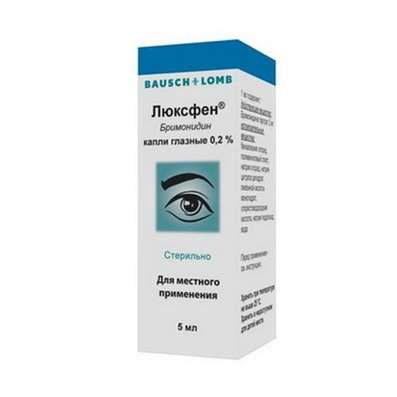Instruction for use: Dicycloverine (Dicycloverinum)
I want this, give me price
chemical name
1-cyclo-hexyl-cyclo-hexanecarboxylic acid beta- (diethylamino) ethyl ester (as hydrochloride)
Pharmacological group
antispasmodics myotropic
M Cholinolytics
The nosological classification (ICD-10)
K80.5 stones of bile duct without cholangitis or cholecystitis
Obstruction of common bile duct, Stones of the common bile duct, biliary colic, Colic liver, Hepatic colic, Cholesterol gallstones in the common bile duct
N23 Renal colic unspecified
Pain in renal colic, Pain smooth muscle spasm, Pain spasm of smooth muscles (renal and biliary colic, intestinal spasms, dysmenorrhea), Pain spasm of smooth muscles of internal organs, Pain spasm of smooth muscles of internal organs (kidney and biliary colic, intestinal spasms, dysmenorrhea), renal Colic, ureteral colic, Renal colic, Renal colic with urolithiasis, Kidney disease, Spasm of smooth muscle in diseases of the urinary system, The spasm of the urinary tract, The spasm of the ureter, The spasm of the ureters, Spasms of the urinary tract, Spasms of the urinary tract
N94.6 Dysmenorrhea Unspecified
Pain during menstruation, Functional disorders of the menstrual cycle, Menstrual cramps, Emmeniopathy, Pain during menstruation, Painful menstrual irregularities, algomenorrhea, algomenoreya, Pain smooth muscle spasm, Pain spasm of smooth muscles (renal and biliary colic, intestinal spasms, dysmenorrhea), Pain spasm of smooth muscles of internal organs (kidney and biliary colic, intestinal spasms, dysmenorrhea), Disalgomenoreya, dysmenorrhea, Dysmenorrhea (essential) (Exfoliative), menstrual disorder, menstruation painful, metrorrhagia, Violation of the menstrual cycle, Menstrual irregularities, Prolaktinzavisimoe menstrual disorders, Prolaktinzavisimoe menstrual dysfunction, Pain spasm of smooth muscles of internal organs, Spasmodic dysmenorrhea, Primary disalgomenoreya
R10.4 Other and unspecified abdominal pain
Abdominal pain, Gastrointestinal spasm, intestinal colic, Colic in infants, The feeling of fullness, Resi abdominal, Spasm of smooth muscle in diseases of the digestive tract, The spasm of the biliary tract, Biliary tract spasm, enterospasm, Spasm of the digestive tract, Spasms of the digestive tract smooth muscle, stomach Cramps, gastrointestinal spasms, Spastic condition of the gastrointestinal tract, intestinal tenesmus, Feeling of fullness, Baby colic
Code CAS 77-19-0
Characteristics of Ditsycloverine
Ditsycloverine hydrochloride - a white crystalline powder, almost odorless, bitter taste. Soluble in water, slightly soluble in ethanol, chloroform, very slightly soluble in ether. Molecular Weight - 345.96.
Pharmacological Properties Pharmachologic effect
Mode of action - antispasmodic, myotropic, holinoliticheskoe.
It eliminates the spasm of smooth muscles of the digestive tract and reduces the pain caused by them. In animal studies (in vitro studies using isolated guinea pig small intestine) have shown that the effect is mediated by two mechanisms: firstly, a specific anticholinergic effect on acetylcholine receptor sites, similar to the effect of atropine (antimuscarinic activity), and secondly - Direct effect on smooth muscles, as evidenced by the ability to block Ditsycloverinebradikinin- gistaminindutsirovannye and spasms (atropine does not change the response to these two agonists). In in vivo studies in cats and dogs it was about ditsikloverin ravnoeffektiven against intestinal spasm induced by acetylcholine and barium chloride. The absence of a significant influence on the pupil Ditsycloverine(in the tests to assess the effects mydriatic activity in mice was approximately 1/500 atropine activity), as well as on the secretion of the salivary glands (in studies in rabbits showed activity atropine 1/300).
Carcinogenicity, mutagenicity, effects on fertility
Data on the potential carcinogenicity and mutagenicity Ditsycloverinehydrochloride in humans. Long-term studies in animals to evaluate the carcinogenic potential Ditsycloverinehydrochloride was not performed. In studies in rats when administered at doses up to 100 mg / kg / day Ditsycloverinehydrochloride had no dangerous effect on reproduction, conception and birth.
Application of the substance Ditsycloverine
Colic (intestinal, liver, kidney), tuberculosis.
Contraindications
Hypersensitivity, obstructive gastrointestinal disease, liver and urinary tract, severe ulcerative colitis (when used in high doses can decrease intestinal peristalsis, until the development of paralytic ileus; use may contribute to the emergence or aggravation of such serious complications such as toxic megacolon), peptic ulcer and duodenal ulcers, reflux esophagitis, an unstable state of the cardiovascular system in acute hemorrhage, glaucoma, myasthenia gravis, a children's age (up to 6 months).
Restrictions apply
Autonomic neuropathy, impaired liver and kidney function (reduced excretion by the kidneys may increase the risk of side effects), tachycardia, including in hyperthyroidism (may increase), hypertension (may increase), heart disease (including coronary artery disease, congestive heart failure, tachyarrhythmia), hiatal hernia, prostate hypertrophy.
Pregnancy and breast-feeding
During pregnancy, the use is possible only in case of necessity. Adequate and well-controlled studies have been conducted in humans. Reproduction studies in rats and rabbits receiving Ditsycloverinehydrochloride in doses up to 33 times higher than the MRDC (160 mg / day or 3 mg / kg) showed no effect on fertility or undesirable effects on the fetus.
Category effects on the fetus by FDA - B.
Contraindicated during breast feeding (it was reported that Ditsycloverine hydrochloride is excreted in breast milk may develop respiratory distress syndrome in infants who are breastfed).
Side effects of Ditsycloverine
Dry mouth, dizziness, blurred vision, nausea, drowsiness, weakness, nervousness, constipation, loss of taste, anorexia, increased intraocular pressure, tachycardia, decreased sweating, allergic reactions.
Interaction
Ditsycloverine effects, including side, can enhance the drug with anticholinergic activity: amantadine, class I antiarrhythmics (eg quinidine), antihistamines drugs, antipsychotic drugs (eg phenothiazines), benzodiazepines, MAO inhibitors, opioids, nitrates and nitrites, sympathomimetics, tricyclic antidepressants. Anticholinergic drugs counteract the effect of antiglaucoma agents. In the presence of anticholinergic drugs increased intraocular pressure can be dangerous while the use of corticosteroids. Anticholinergic drugs may interfere with the absorption of digoxin in the gastrointestinal tract and resulting increase in the concentration of digoxin in serum. Anticholinergic drugs may counteract the effects of substances that alter the motor activity of the gastrointestinal tract (metoclopramide). Antacids may affect the absorption of anticholinergic drugs should be avoided sharing application. Inhibition of anticholinergics secretion of hydrochloric acid counteracts the action of the substances used for the treatment of achlorhydria or testing of gastric secretion.
Overdose
Symptoms include headache, nausea, vomiting, blurred vision long, dilated pupils, fever, dry skin, dizziness, dry mouth, difficulty swallowing, CNS stimulation. Kurarepodobnoe possible effect (i.e. neuromuscular blockade, resulting in muscle weakness and possibly paralysis).
Treatment: induction of vomiting, gastric lavage, administration of activated charcoal. For relief of excitation - drugs with sedative effects (short-barbiturates, benzodiazepines). Where indicated, as an antidote corresponding cholinergic agents may be used.
Routes of administration
in
Precautions Ditsycloverine substance
Be wary appointed to high ambient temperatures (due to decreased sweating and hyperthermia increases the likelihood of heat stroke). Keep in mind that diarrhea may be an early symptom of incomplete intestinal obstruction, especially in patients with iliostoma or colostomy. In these cases, treatment Ditsycloverine hydrochloride is not shown and may be dangerous.
In connection with the possible emergence of drowsiness and blurred vision in the treatment Ditsycloverine hydrochloride should be careful and not be at risk if activities requiring rapid mental and motor reactions, including when driving. It has been reported that in patients with hypersensitivity anticholinergic drugs can cause psychosis. The action on the central nervous system is manifested in the development of symptoms such as confusion, disorientation, short-term memory loss, hallucinations, dysarthria, ataxia, coma, euphoria, decreased anxiety, fatigue, insomnia, agitation and mannerisms, inappropriate emotional reactions. These symptoms are usually reduced within 12-24 hours after the discontinuation Ditsycloverinehydrochloride.
Before applying Ditsycloverine hydrochloride is necessary to clarify whether the patient has tachycardia, as Ditsycloverine hydrochloride may increase the heart rate.

 Cart
Cart




